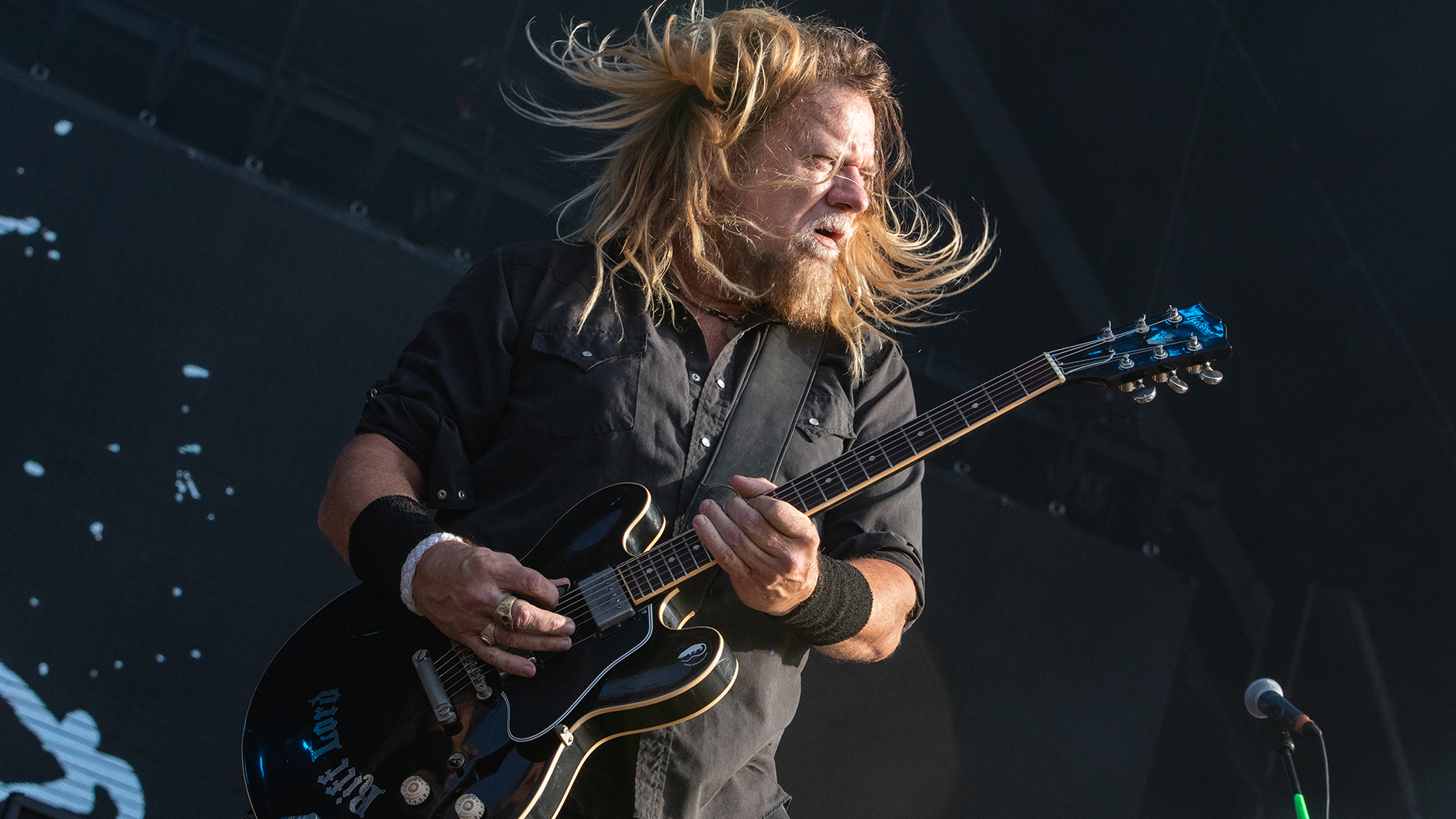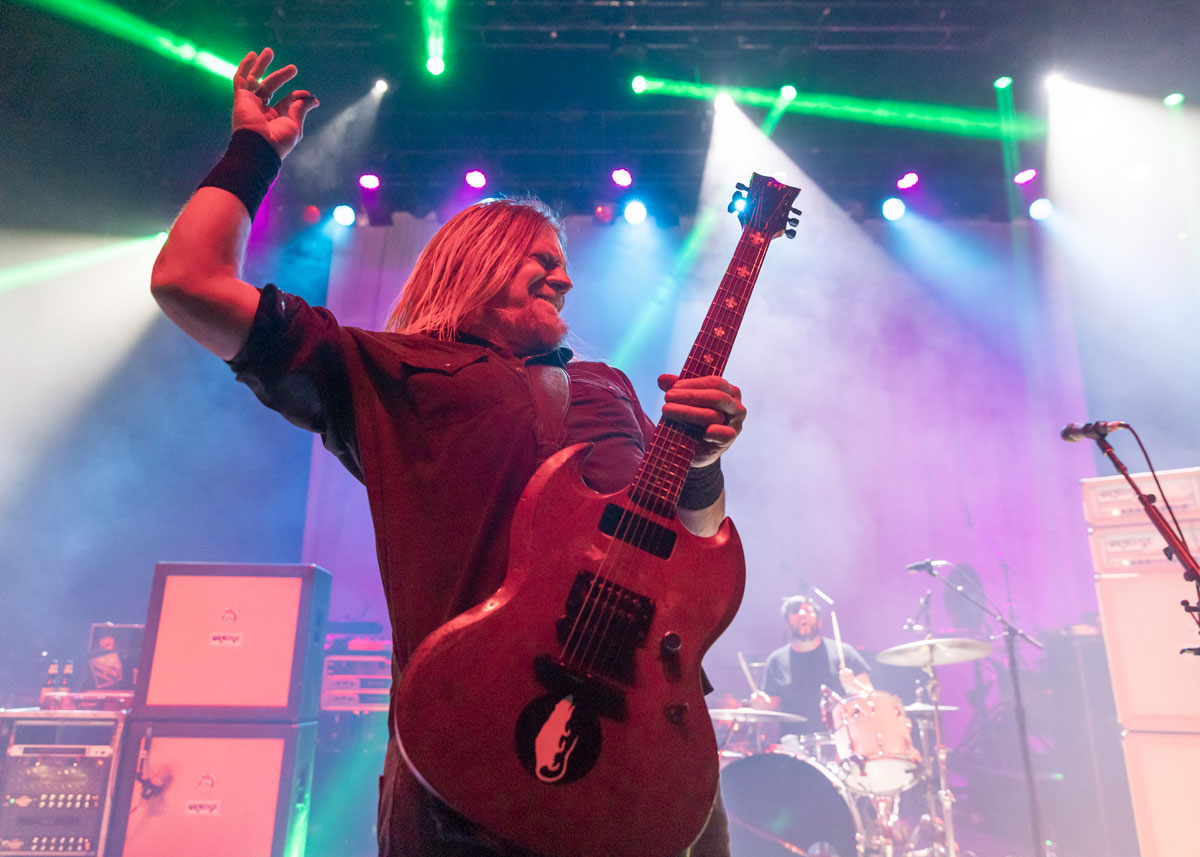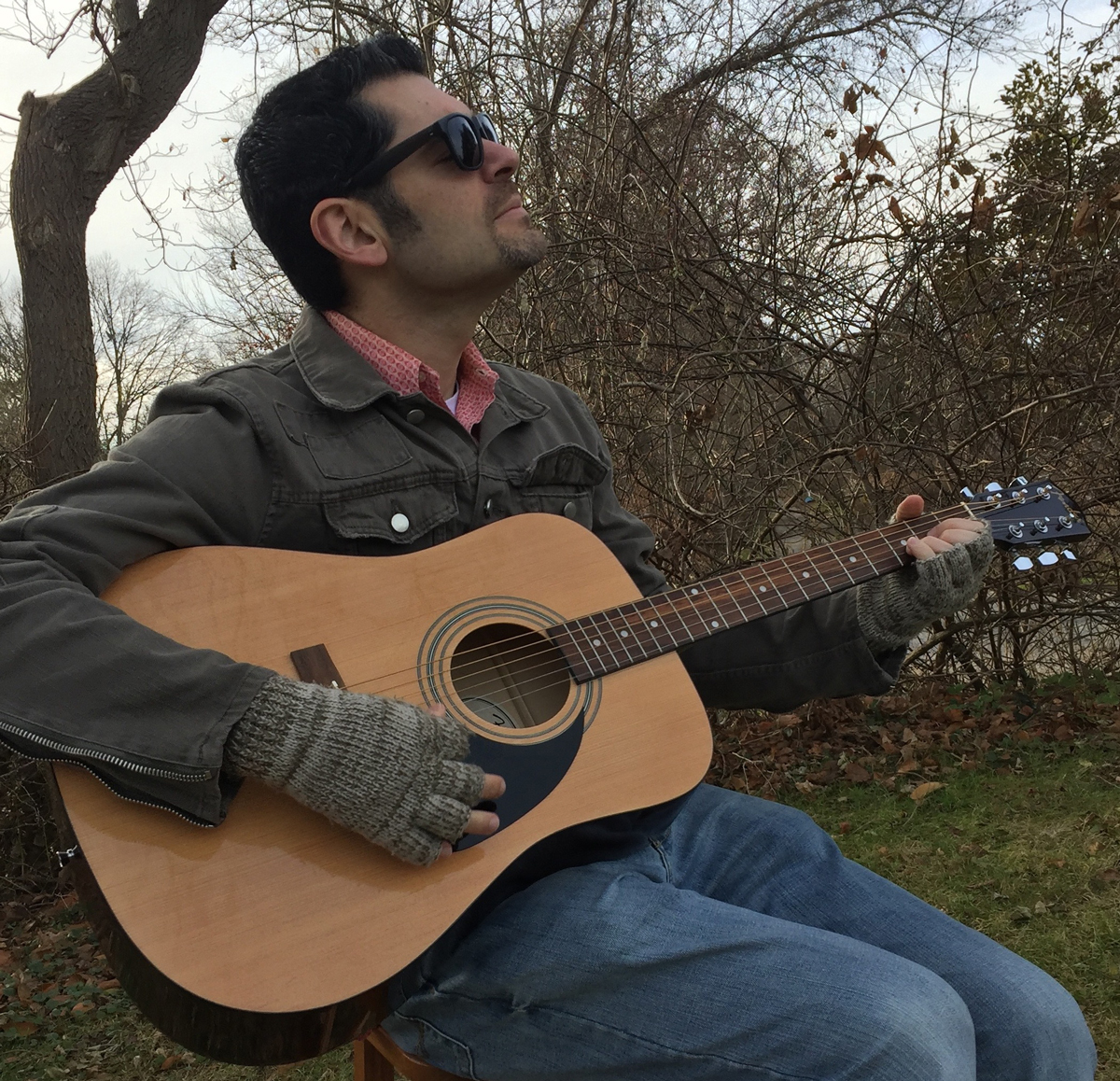Pepper Keenan on why Corrosion of Conformity switched from “beat-to-s**t” Gibson SGs to ESPs: “James Hetfield said, ‘Man... these guitars ain't gonna make it!”
As the punk-metal crossover troupe gears up to hit the road, Keenan takes a trip down memory lane, looking back on touring with Metallica in the '90s and sharing his proudest COC guitar moments

Although the co-mingling of different rock sub-genres is commonplace nowadays, back in the early ‘80s, it was a no-no. And in particular, punk rock and heavy metal were not to be mixed.
However, several bands were bold enough to meld the speed and fury of punk with the riffs and volume of metal – creating what was then referred to as “crossover”. And Corrosion of Conformity were certainly one such band – particularly on their now-classic 1985 offering, Animosity.
By the close of the decade, the group had welcomed second guitarist Pepper Keenan aboard, and began noticeably leaning more towards the heavier side of things. And with the arrival of 1994’s Deliverance, Keenan was now pulling double duty as COC’s lead vocalist, in addition to also contributing guitar to the metal supergroup, Down.
Thus far, Keenan has appeared on six COC studio albums – the latest being 2018’s No Cross No Crown – as well as three full-lengths and two EPs with Down.
Here, the guitarist speaks with Guitar World – shortly before Corrosion of Conformity launch a US tour – about his “workhorse” ESP guitar, touring with Metallica, and the future of both COC and Down.
What is your current guitar setup?
“Me and Woody [Weatherman, Corrosion of Conformity co-guitarist] use ESP guitars that we had made years ago. They’re basically beat-to-shit workhorses at this point.
Get The Pick Newsletter
All the latest guitar news, interviews, lessons, reviews, deals and more, direct to your inbox!
“It’s almost like I get nervous taking them on tour – because they’re an extension of us. They’re beat to smithereens, and ESP just keeps putting them back together.
“And then I use the Orange Thunderverbs. They make the 50-watt head, but I just found a 200. So, I’m [moving] to a 200 Thunderverb – and Orange doesn’t make them anymore. But it’s still my go-to amp.
ESPs are just workhorses – they’re beautiful guitars. They're an extension of how we play and I’d be lost without them
“And I use channel B, and it only has three knobs – shape, gain, and volume. And then a pedalboard, nothing fancy – wah wah, Tube Screamer, Phase 90, a cool delay pedal. That’s about it. We keep it real simple.”
How did you get involved with ESP?
“A long time ago, when COC got the world tour with Metallica [which ran from 1996 through 1997], we went and rehearsed in a blimp hangar in Birmingham, England, and Woody and I had some Gibson SGs, but they were just ratty.
“And I remember [James] Hetfield saying, ‘Man… these guitars ain’t gonna make it!’ So, he hooked us up with ESP, and they made us some copies of our favorite SG’s. And we’ve been using them ever since.
“They’re just super-solid. And I had mine made as thick as a Telecaster – it has more. But they’re just workhorses – they’re beautiful guitars. [They're] an extension of how we play and I’d be lost without them.”
![[L-R] Woody Weatherman and Pepper Keenan of Corrosion of Conformity](https://cdn.mos.cms.futurecdn.net/ZNkvfvC2D9prr4fCh4sPX7.jpg)
What’s different between your ESP and a Gibson SG?
“I put the volume knob where it would be on a Strat – so I can roll it off while I’m picking. I moved the knob closer to the tailpiece.
“And the input jack is upside-down in the side of the body, so you’re not snapping that off – it goes up and over the strap. The pickup selector is out of the way – it’s not up on the horn.
“Just cool things that if you had to modify an SG, you would do – for something that you’re beating the shit out of every day. I’ve turned it into a Black+Decker power tool, basically.”
Before, you mentioned when COC opened a whole tour for Metallica. What are some of your fondest memories from that trek?
“Just being thrown to the lions. We were going from clubs to all of a sudden, we were at a soccer stadium in Warsaw. And going around Europe and the United States.
“Playing in Europe in Eastern Bloc countries, where nobody really heard of you – opening for Metallica at that point in their career where they were just giant. You had to put your big boy pants on real quick. [Laughs] It was quite a learning curve.
There are so many epic things through the years of cool guitar moments that it’s hard to knock it down to one, or two even
“Hetfield was great at guiding us. And it was in the round – we were no longer with amps just behind us. It was circular and it was a whole different ballgame. You just put up or shut up.
“And the big thing is you didn’t want the crowd doing, ‘Metallica! Metallica! Metallica!’ in the middle of your set. You had to just go. And it was wonderful – it was a great learning experience that I’ll cherish for the rest of my life.”
Which COC songs are you most proud of from a guitar standpoint?
“Albatross was a signature thing – that was wonderful when we came up with that guitar tone. There’s some things off In the Arms of God that just fell into place and ended up being well-written – and we couldn’t figure out how we did it.
“And some of the mellower stuff, like Shelter, Stare Too Long – which people don’t know, but that was Warren Haynes playing guitar on that; he played slide.
“There are so many epic things through the years of cool guitar moments that it’s hard to knock it down to one, or two even.”
It’s been nearly five years since COC’s last album, No Cross No Crown. Is the group working on a new one?
“Yes. We’re doing this next tour, and then we’re going to start putting the pieces together and get our heads in ‘studio land’, and just focus on that.”
Will it be released in 2023?
“Maybe. We take our time doing these things. The Covid thing put everything in a kibosh and we lost a lot of time and energy.
“The way COC does it, if it ain’t right it’s wrong. We put our energy into it and try to create something that is up to our standards and try to push things as hard as we can in our world.”
What are your thoughts on No Cross No Crown today?
“I love it. It was a really fun experience to do and the last thing we did with Reed [Mullin, COC’s late drummer], unfortunately. So, it holds a special place in my heart. We’re very happy with it.”
The coolest thing about our Son and Daughter cover is it was ‘Brian May approved’ – he put up a Facebook post on the Queen page or something. That was a pretty exciting thing – to get a response from the wizard himself
How did Reed’s passing affect you and the band?
“We lost our left arm. It was very hard to find a drummer. We have John Green, who is fantastic, but you just can’t replace people like that.
“Other people have gone through it, too – but it’s not easy. You spend decades with a person writing, and you don’t even have to look at them; it just comes out.
“This was the first time we had to regroup in a long time and try to do it with a different drummer. We’ve got that figured out, so now we’re getting ready to focus on that.”
I thought COC’s cover of Queen’s Son and Daughter on No Cross No Crown was great. How did the idea come about?
“It was something that our producer, John Custer, and we had all talked about for years. And it never felt right to do it. On this record, it kind of felt like a cool thing.
“We figured out a method and a way to do it – and have it not titled and show up on the CD a minute later, as a hidden track. It was just one of those moments where it all finally came together and we decided to do it.
“We had the guitar tone and it sounded right, and we said, ‘Let’s do it.’ And we did.
“And the coolest thing about it is it was ‘Brian May approved’ – he put up a Facebook post on the Queen page or something. That was a pretty exciting thing to get a response from the wizard himself.”

Which modern-day guitar bands do you enjoy?
“I have been freaking out on a band called the Steel Woods. They have two records – the guitarist [Jason Cope] passed away [in 2021].
“They’re just a southern rock band, a country rock band, but they’ve got it. Whatever it is, they have it. Steel Woods [are] fantastic – I can’t stop listening to it.”
How does listening to music that’s not heavy affect your songwriting for COC?
“For me, I listen to somebody like Skip James, and I can just hear riffs, melodies, and lyrical content. And the delivery of the lyrical content – applying that to a heavier rock n’ roll thing is something I think more people should do.
“And it’s kind of how some of the older bands evolved in the first place. I tend to go way back to the source – I’ve even been on a damn Jerry Lee Lewis trip! Listening to shit like that, I’m like, ‘Man. These people were out of their minds back in the day.’ And I really enjoy seeing that.
Before Cro-Mags, Animosity for me in my world was the one that connected the dots
“It doesn’t matter the type of music it is, but how hard they were pushing it back in the day. It was extreme music back then and I enjoy unravelling things like that from the old days. But I still listen to Judas Priest every damn day. I just have an open mind.
“At this point in the game, when COC get together, we know what [we're] supposed to do. We’ve got our own method – it’s just got to have a keen sense of melody and be guitar-heavy and creative. And just trying to stay on that route.”
What is the status of Down?
“Clearly, we’re not doing anything for a wee bit. Phil [Anselmo] is going to be full-throttle with the Pantera thing, but we’re going to be keeping it all together. We’re getting ready to start getting our riffs together and writing together, and everybody is in New Orleans.”
In your estimation, was COC the first band bold enough to combine punk and metal?
“One thousand percent. Before I was in the band. I think Animosity is the true connection of all that stuff – crossover, DRI [Dirty Rotten Imbeciles], Discharge, and all that stuff. I think COC were the first band who were freaking out on Discharge and Black Sabbath.
“And Animosity really shows that. Hands down. Before Cro-Mags, before all that – Animosity for me in my world was the one that connected the dots. Absolutely.”
- Corrosion of Conformity set off on a US tour from November 10. For info and tickets, head to the band's official website.
Greg is a contributing writer at Guitar World. He has written for other outlets over the years, and has been lucky to interview some of his favorite all-time guitarists and bassists: Tony Iommi, Ace Frehley, Adrian Belew, Andy Summers, East Bay Ray, Billy Corgan, Alex Lifeson, Geddy Lee, Les Claypool, and Mike Watt, among others (and even took lessons from John Petrucci back in the summer of ’91!). He is the author of such books as Grunge Is Dead: The Oral History of Seattle Rock Music, Shredders: The Oral History of Speed Guitar (And More) and Touched by Magic: The Tommy Bolin Story.
“There’d been three-minute solos, which were just ridiculous – and knackering to play live!” Stoner-doom merchants Sergeant Thunderhoof may have toned down the self-indulgence, but their 10-minute epics still get medieval on your eardrums
“There’s a slight latency in there. You can’t be super-accurate”: Yngwie Malmsteen names the guitar picks that don’t work for shred




![A black-and-white action shot of Sergeant Thunderhoof perform live: [from left] Mark Sayer, Dan Flitcroft, Jim Camp and Josh Gallop](https://cdn.mos.cms.futurecdn.net/am3UhJbsxAE239XRRZ8zC8.jpg)







